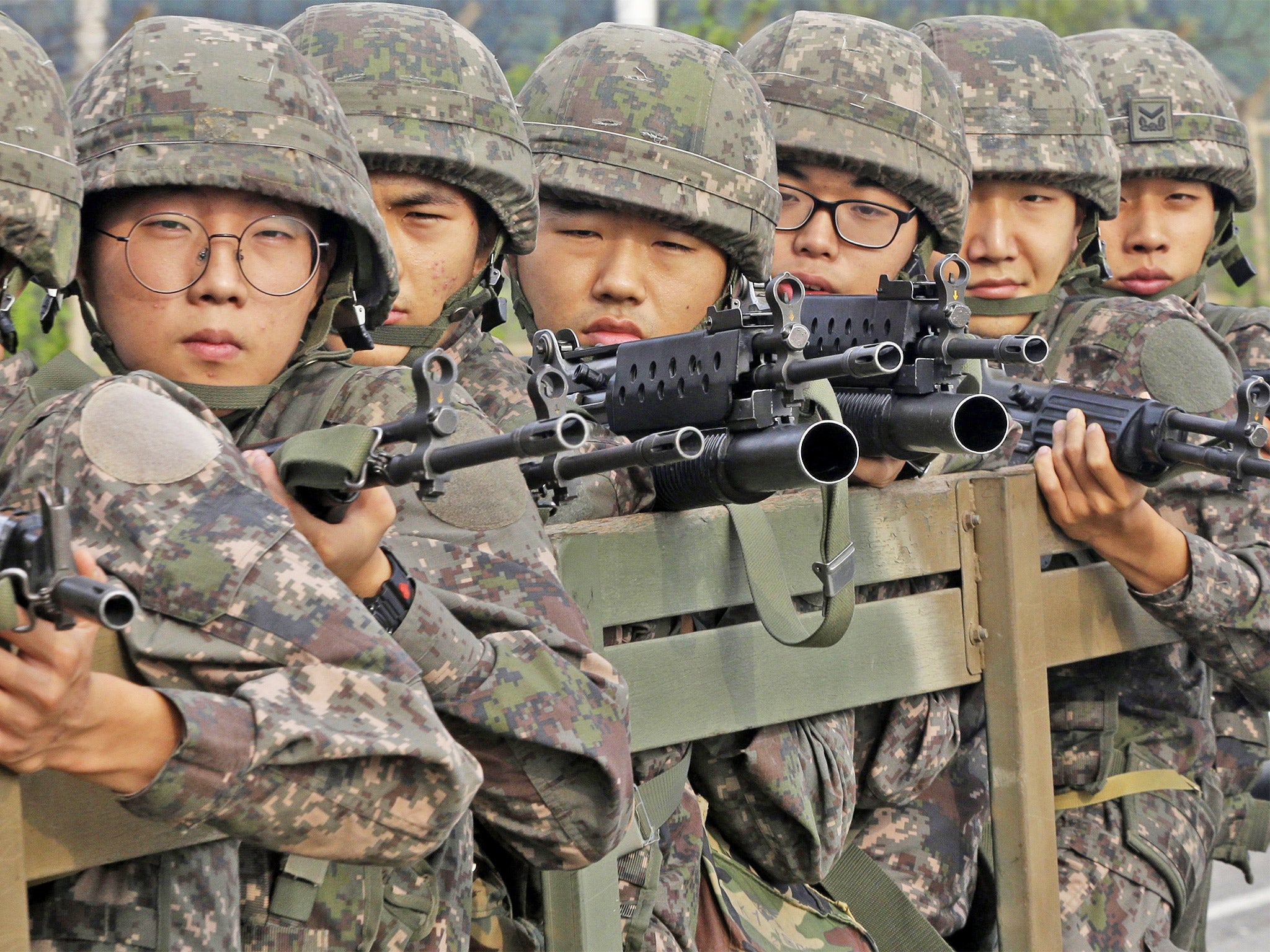From 'semi-war' to 'semi-peace' in the fantasy land of Korea's Demilitarized Zone
World Focus: 40 hours of talks concluded with concessions from both sides

Suddenly Korea has gone from a state of “semi-war” to “semi-peace”. For the term “semi-war”, we have to thank North Korean leader Kim Jong-un, who declared that state of affairs last week as he ordered his forces north of the line with North Korea to be “battle ready”.
For the term “semi-peace” to describe the current state of affairs, credit goes to Bruce Klinger, a former CIA analyst now with the conservative Heritage Foundation in Washington. Mr Klinger arrived for a conference as North and South Korean negotiators were wrapping up 40 hours of talks initiated after gunners from both sides exchanged artillery fire last Thursday.
Just as they appeared to be getting nowhere, word came out, at 1am, Seoul time, that they’d announce the outcome of the talks one hour later. No one doubted, after all that palaver, that there would be concessions. The North did manage something like “sorry” for setting the mine that had blown the legs off two South Korean sergeants. The South promised to shut up the mega-loudspeaker broadcasts of K-pop, news, and invidious commentaries.
It was, Mr Hong said hours later, the “first time that the North offered an apology and expressed regret” in such negotiations. “Meaningful” was the favourite adjective employed by Mr Kim and Mr Hong as they talked about the longest North-South negotiations since the division of North and South Korea by the US and Soviet Union at the end of the Second World War.
The word “regret,” however, fell significantly short of a real apology. It seemed like a small price to pay for North Korea to get the South to stop the broadcasts.
The North Koreans, led by Vice-Marshal Hwang Pyong-so, political chief of the armed forces, probably the second highest-ranking official, had to do a deal for one basic reason: North Korean forces don’t have the fuel to fight for long against South Korea, much less the US.
It’s doubtful, in fact, that they could power those 50 submarines that were reported missing from their home ports at the height of the talks. It’s now believed they were simply in hiding, giving the impression of a threat. The nature of the force North Korea faced was obvious when I witnessed military exercises staged by US and South Korean troops. As I watched war planes staging mock bombing runs in the hills south of the DMZ, US soldiers lounging behind their tanks hardly seemed apprehensive. “I’ve been here before,” said Sergeant Preston Laybon. “They always do this stuff.”
Private first class Israel Corona was laconic. “They’re trying to pick up a fight,” he said. First Sergeant Todd Archer, a veteran of Iraq and Afghanistan, was “not at all concerned” while the battalion commander, Lieutenant Colonel Andrew Tackberry, was even less impressed. “This is my second tour here,” he said. “Every time we do these exercises, the rhetoric is there.”
US and South Korean troops were still playing war games while South and North Korea began pulling back reinforcements. The South Koreans, a military spokesman told me, were withdrawing “step by step” in tandem with the North Koreans. Some of the GIs were disappointed. “If there’s a war with North Korea, we’d be better off in the long run,” said Specialist Brett Beale, a team leader manning a 127mm Javelin rocket. “We wouldn’t have all these threats.”
Join our commenting forum
Join thought-provoking conversations, follow other Independent readers and see their replies
Comments